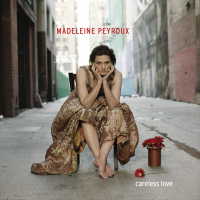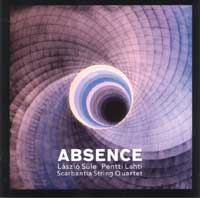Home » Jazz Articles » Album Review » Clark Terry: Porgy & Bess
Clark Terry: Porgy & Bess
Arranger and conductor Jeff Lindberg points out in the liners that while the Miles Davis original served to emphasize the despair of the Gershwin opera, Terry's work vastly opens the interpretation to a much wider range of emotional coloration, which is something that I had never considered over the past 45 years. Although uncredited in the liners, the Manhattan School of Music under the direction of Justin DiCiocicco and the participation of saxophonist Dave Liebman, released a similar project in 2003 which featured the original charts for the Davis/Evans album Sketches of Spain. So, in the course of twelve months, we've been treated to two examples of tampering with the past, and the result has been positive on both occasions. The sonics of the original Gil Evans arrangement was a state-of-the-art 1958 studio recording. Current technology places this recording on a much fuller plane and adds a richer and brighter sound.
There is an interesting personal connection between Clark Terry and Miles Davis. While he was a music student in St. Louis, Davis sought out Terry as an important influence. On this recording, Terry wisely makes no attempt to duplicate Miles's version of Porgy & Bess. His tone is a thing of beauty, whether on trumpet or flugelhorn, open or muted. Both of these trumpet legends had their own distinct and recognizable sound, and by the time the second track, "Bess, You Is My Woman Now," hits the ten second mark, you know that you're totally captivated by the updated arrangement. For the version of "Summertime," Terry also plays muted trumpet but not the patented Miles Harmon mute. This was the song that Jon Hendricks wrote a lyric for on the first Lambert, Hendricks & Ross Columbia album. Terry also gets a chance to briefly utilize his one-of-a-kind "Mumbles" vocal technique in "Here Come De Honey Man."
I am not enough of an archivist to match the 1958 original to this 2004 version and add up the pros and cons on an exact balance sheet. However, as a listener, I am pleased to report that the jury awards a positive decision to the work of Mssrs. Terry and Lindberg and the CJO for their heartfelt work.
Track Listing
Buzzard Song; Bess, You is My Woman Now; Gone; Gone, Gone, Gone; Summertime; Bess, Oh Where's My Bess; Prayer (Oh, Doctor Jesus); Fishermen, Strawberry and Devil's Crab; My Man's Gone Now; It Ain't Necessarily So; Here Come De Honey Man; I Loves You, Porgy; There's a Boat That's Leaving Soon for New York
Personnel
Clark Terry
trumpetClark Terry (solo trumpet, flugelhorn, vocal on "Here Come De Honey Man")
With the Chicago Jazz Orchestra: Jeff Lindberg (artistic director and conductor), John Wojciechowski (alto saxophone), Darlene Drew (alto flute, piccolo), Jerry DiMuzio (alto flute, bass clarinet), Kimberly Risinger (bass flute, flute), Larry Combs (b-flat clarinet, bass clarinet), William Overton (bass clarinet), Randy Salman (b-flat clarinet, bass clarinet), Greg Flint (French horn), Neil Kimel (French horn), Angela DeBoer (French horn), Christine Worthing (French horn replacing Neil Kimel on "Buzzard Song," "Summertime"), Danny Barber (trumpet), Kirk Garrison (trumpet, replaces Danny Barber on lead trumpet on "Buzzard Song"), Doug Scharf (trumpet), Art Davis (trumpet), Art Hoyle (trumpet), Brent Turney (trumpet, replaces Danny Barber on lead trumpet on "Summertime"), Scott Bentall (trombone), Tim Coffman (trombone), Andrew Baker (trombone), Michael Young (bass trombone), Daniel Anderson (tuba), Dennis Carroll (bass), Rob Kassinger (bass, replacing Dennis Carroll on "Prayer (Oh Doctor Jesus)"), George Fludas (drums)
Album information
Title: Porgy & Bess | Year Released: 2004 | Record Label: A440 Music
Tags
PREVIOUS / NEXT
Support All About Jazz
 All About Jazz has been a pillar of jazz since 1995, championing it as an art form and, more importantly, supporting the musicians who make it. Our enduring commitment has made "AAJ" one of the most culturally important websites of its kind, read by hundreds of thousands of fans, musicians and industry figures every month.
All About Jazz has been a pillar of jazz since 1995, championing it as an art form and, more importantly, supporting the musicians who make it. Our enduring commitment has made "AAJ" one of the most culturally important websites of its kind, read by hundreds of thousands of fans, musicians and industry figures every month.





















